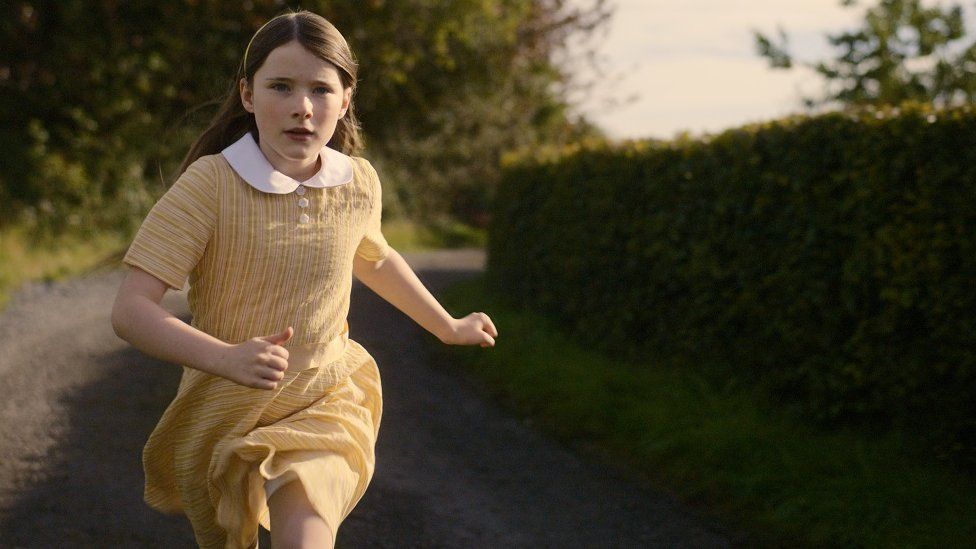The Job of Songs
by Christie Robb
Paul Simon’s “59th Street Bridge Song (Feelin’ Groovy)” is a one minute and 43 second impression of being content and in the moment. It feels like a possible anthem for the Slow philosophy—an approach to life that values taking one’s time, doing things at the right pace, valuing the quality over the quantity in life.
Writer/director Lila Schmitz’s one hour and 13 minute documentary has a similar approach.
The Job of Songs is about the community of session musicians that populate the small village of Doolin in County Clare in the west of Ireland—the area around the Cliffs of Moher. An isolated village until the 1970s, folks gathered in homes to play traditional (“trad”) Irish music and to dance.
Opening the Cliffs to international tourism brought in increased revenue and enabled musicians to pursue their art professionally, but it also changed the cultural scene. Folks dashed in on day trips to take a snapshot of the Cliffs, but failed to linger and really take in the place and the people.
Tourism meant that performances moved from private to public spaces—out of the kitchen and parlor and into pubs and restaurants. But performing trad music is still a community activity. At a session, anyone is welcome to pick up their instrument or raise their voice and join in, even if they only know a couple of bars to a piece.
Through candid interviews and emotional performances, Schmitz’s film explores the changing culture of Doolin and the various purposes songs have in the lives of the Irish of the West country. It’s a source of entertainment, yes. But songs also carry the often melancholy history of the Irish people and culture, allow the saying of otherwise unspeakable things, and give people permission to feel things that are not easily understood intellectually.
The film explores the different aspects, both dark and light, that this musical culture has in people’s lives. While the session scene brings people together, it also has ties to drink, depression, and suicide. And though singing the old trad songs maintains a connection to Ireland’s past with its history of brutal colonization, famine, and emigration, Schmitz also leaves space to explore the change that technology, tourism, and a recent history of immigration has brought to the scene. She shows how a culture so rooted in a place can slowly change over time.
The music of Luka Bloom, Eoin O’Neill, Kate Theasby, Christy Barry, and Ted McCormac (among others) could be draw enough, but slowing down to appreciate the way the cozy light of the pub provides an antidote to winter’s gloom goes a long way toward making a person feel pretty groovy. As does the drama inherent in the view of the green of the land ending abruptly in the pounding of the ocean. It’s a movie worth savoring.






